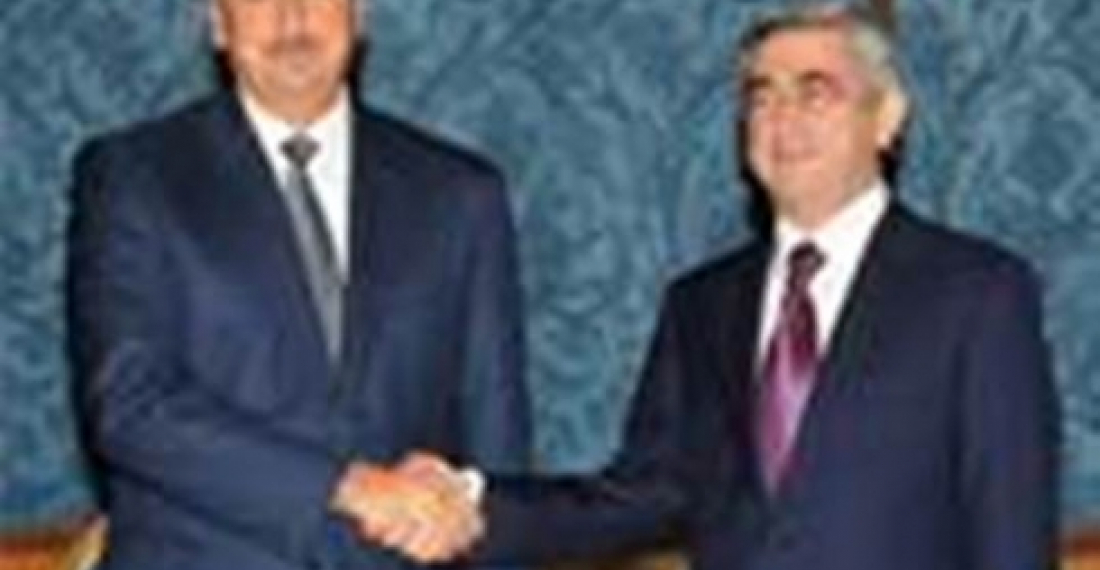This commentary was prepared by the political editor of commonspace.eu.
Over the last few days there has been increased talk of a summit between the Presidents of Armenia and Azerbaijan, sometime later this year. The rumours coincided with what looks like an increased effort on the part of the key international players to bring the two countries back to the negotiating table. Earlier this week US Secretary of State John Kerry met separately in Washington with the Azerbaijani and the Armenian Foreign Ministers, in what looked like a step-change in US engagement with the Karabakh conflict resolution process. A day later President Putin and the leadership of the European Union discussed the conflict during the EU-Russia summit in Yekaterinburg.
The two Presidents have not met in a bilateral format for nearly eighteen months the last meeting having taken place at the invitation of President Medvedev in Sochi in January 2012. That meeting ended the Medvedev initiative which had been on-going since November 2008, and which saw a process of regular meetings facilitated by the Russian President. Since then the Karabakh negotiations have been all but stalled. The Azerbaijanis describe the situation as stagnation. Both sides accuse each other of procrastination. The mood in the international community is frustration.
So what has happened to make a summit this year now possible?
Tangibly, nothing. The two sides remain entrenched in their position and do not seem in the mood to compromise. The discourse both by the leaders, their close aides and the official media in the two countries, remains bellicose. Both sides still think time is on their side: The Armenians think their best strategy is to dig in and see through what appears to be "an Azerbaijan moment" fuelled by the financial bonanza of oil exports Azerbaijan will become again the weak country that it was in 1992-4; the Azerbaijanis think that if they can squeeze the Armenians for long enough through embargos and isolation they will erode their will to resist. Both scenarios are wishful thinking, but each side believes its story passionately.
Neither side however wants to be seen as the spoiler of the negotiating process. The Armenians are comfortable with the format of the Minsk Process and see it as a guarantee that the status quo will not be challenged too much. They now depict Azerbaijan as being the one challenging the will of the international community. The Azerbaijanis are unhappy with the Minsk process but do not want to be seen as the ones wrecking it.
Timing is also important. The Presidential election campaign in Azerbaijan unofficially kicks off today after Ilham Aliev was formally nominated as the candidate of the ruling Yeni Azerbaijan Party at a rare Party Congress held in Baku. A summit before the election is unlikely. Baku however sees some benefit in dangling the prospect of a summit immediately afterwards as a carrot in front of the international community, hoping that Europe and the US will not rock the boat too much if the elections are problematic , because they will not want to spoil the chances of a Karabakh peace settlement.
A summit between President Ilham Aliev and President Serzh Sargsyan is a positive development and needs always to be welcomed. But the lessons of the last twenty years have taught us that unless the time between now and the planned meeting is used to change the overall mood around the conflict the chances that the two leaders will get some miraculous vision and achieve a breakthrough in the negotiations when they meet bilaterally is very small indeed. So the prospect of a summit should not be an excuse for not doing anything between now and then. Both sides need to prepare for it by showing through their words and deeds that they are approaching it with a positive attitude and with a wish to bring this long and painful problem to an end.
source: commonspace.eu







